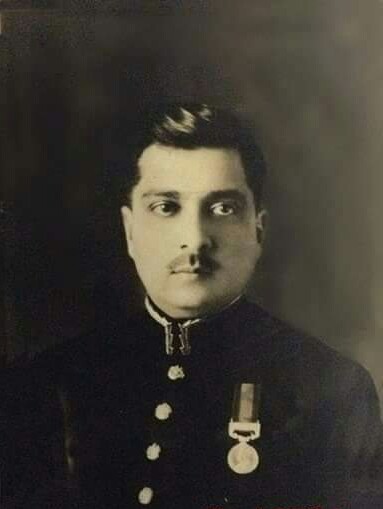
Skand was the great grandson of Mirza Mir Jafar. His great-grandfather Mir Jafar had betrayed Nawab Siraj-ud-Daulah and paved the way for the victory of the British.
He was educated at Finston College, Bombay.
He entered the Royal Military College Sandhurst during his college life.
Successfully returned to India in 1919.
In 1921 he joined the 2nd Scottish Rifle Regiment at Kohat and fought in Khudadad Khel.
Participated in the battle of Waziristan in 1924.
From 1922 to 1924 he was in the Poona Horse Regiment with Jhansi as its headquarters.
Elected to the Indian Political Service in 1926 and served as Assistant Commissioner in Abbottabad, Bannu, Nowshera and Tank.
From 1931 to 1936 he was Deputy Commissioner in Hazara and Mardan.
In 1938, political agents were appointed in Khyber. Due to his administrative ability and experience in tribal affairs, he was appointed Deputy Commissioner of Peshawar in 1940.
Stayed here until 1945.
Then they were transferred to Orissa.
In 1942, he was appointed Joint Secretary in the Ministry of Defense, Government of India.
After the formation of Pakistan, Sikandar Mirza became the first Secretary of the Ministry of Defense of the Government of Pakistan
Nominated.
In May 1954, he was made the Governor of East Pakistan.
Then he became the Home Minister.
State and tribal departments were also handed over to him.
Malik Ghulam Mohammad’s health deteriorated
He became the acting governor on August 6, 1955.
On March 5, 1956, he was elected the first President of the Islamic Republic of Pakistan.
On March 23, 1956, he assumed the office of President of the Islamic Republic of Pakistan
Due to the political crisis, on October 7, 1958, the first nationwide martial law was enacted.
Twenty days later, on October 27, 1958, Chief Martial Law Administrator Field Marshal Ayub Khan dismissed him and deported him, after which Sikandar Mirza spent the rest of his life in London.
After the overthrow of Ayub Khan, Sikandar Mirza tried to return home but he was not allowed to do so.
He died in London on November 13, 1969, his 17th birthday.
On November 15, 1969, he was buried in Tehran with full state honors.



